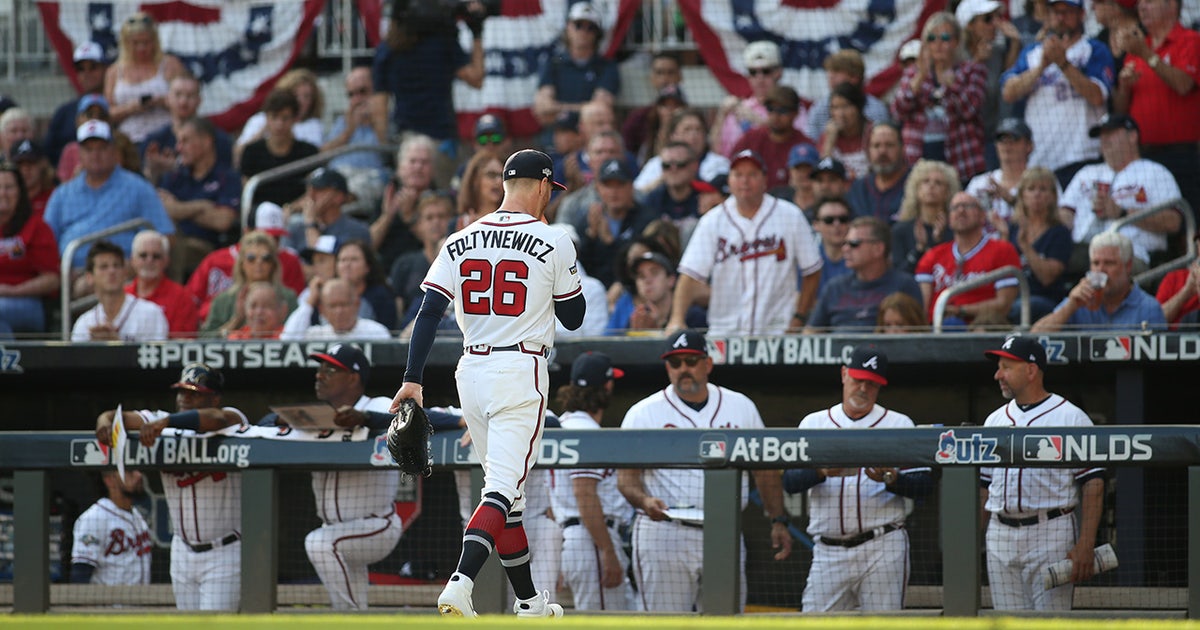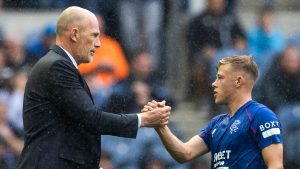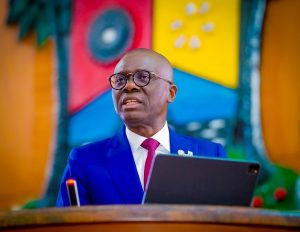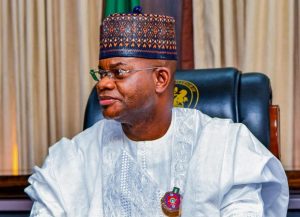Braves’ magical season comes to frustrating end as Cardinals race to record-setting win to take NLDS


ATLANTA — The wait, frustratingly, continues.
A second straight 90-win season, another National League East title, ended with heartbreak. A year when McCann returned for what would be his farewell tour, Ronald Acuña Jr. and Ozzie Albies were locked up and the Bringer of Rain made umbrellas become ballpark fixtures, fell short. A franchise record for home runs and a chase at 40/40, and on and on, and it ended with the Braves’ suffering another early exit.
The Cardinals claimed a spot in the NLCS after a record-setting 13-1 win in Wednesday’s Game 5, leaving a sour taste after a season of highs was met with a painstaking loss for these Braves.
“I would describe it as we failed,” Freddie Freeman said. “We had a really good team, a team good enough to go all the way. That’s pretty much how I feel right now.”
The truth is these Braves aren’t going to lose their contender status in a deep NL East, not with Freeman and this young core intact, a growing ace in Mike Soroka, and plenty of money to spend with just $51 million currently on the books for 2020.
But that look toward the future is a reality check for a different day, after the sting disappears of a defeat that made it six straight defeats in potential series-clinching games and an MLB-record 10 consecutive playoff round losses overall.
“I would describe it as we failed. We had a really good team, a team good enough to go all the way. That’s pretty much how I feel right now.”
Freddie Freeman reacts to the #Braves‘ Game 5 loss to the Cardinals. pic.twitter.com/Ozw0g1iqhs
— FOX Sports: Braves (@FOXSportsBraves) October 10, 2019
This one is certain to hurt in a different way, as the Braves were six outs from winning the series opener at SunTrust Park only to see the bullpen give up six runs, and they were on their way to a Game 4 win before Yadier Molina tied it in the eight and delivered the walk-off hit in the 10th inning.
In a series that was define by its drama, the Cardinals removed any hope of it in a first inning in which everything that could have gone wrong went wrong for the Braves.
“Wasn’t how we drew it up, I know that,” said Atlanta manager Brian Snitker. “That thing just kept rolling and we couldn’t stop anybody.”
Mike Foltynewicz, who dazzled in Game 2, pitching arguably the most dominant performance of his career as he outdueled Jack Flaherty, was out after just 23 pitches.
St. Louis got to the righty with the first seven batters reaching and he was charged with seven runs, six of which were earned, and walked three. He had recorded just one out, on a sacrifice bunt.
It was the shortest start in the postseason — outside of those teams utilizing the opener — since Luis Severino also left after a third of an inning in the 2017 AL Wild Card Game against the Twins. Foltynewicz tied John Thomson (2004 NLDS) and Steve Avery (1992 NLCS) for the shortest playoff starts ever for the Braves, all three of which have now come in losses.
“I don’t know what happened out there,” Foltynewicz said. “I’m very embarrassed. … I got one out, couldn’t tell you what happened out there.”
Foltynewicz was relieved by Max Fried, who came in with the bases loaded and gave up three more runs, and the Cardinals pushed it to 10-0 as Kolten Wong scored via a dropped third strike as McCann was unable to throw out Marcell Ozuna.
The nine runs were the most of any team in history in the first inning and once St. Louis reached double figures, it had tied for highest-scoring single inning ever in sending 14 men to the plate.
In the blink of an eye, it was an insurmountable deficit, even for a Braves team that in the regular season scored an MLB-best 395 runs from the sixth inning on. No team in postseason history had ever come back from a deficit larger than eight runs, which came via the A’s in Game 4 of the 1929 World Series vs. the Cubs.
“You can’t plan for that,” Snitker said. “That’s just such different scenario how it happened. … After the first inning, it’s like ‘We just have to get outs now.’”
#Braves manager Brian Snitker: “We’re a very good team. It didn’t happen today.” pic.twitter.com/kEq6MK1aMx
— FOX Sports: Braves (@FOXSportsBraves) October 10, 2019
Atlanta’s pitching — with Foltynewicz and Fried at the center of it all — was a problem not just in Game 5, but it was there in Game 4 in St. Louis as well.
After posting a minuscule 0.96 ERA through the first three games of the series, the Braves starters were tagged for a 22.09 ERA the last two games and the bullpen, which came in to Wednesday with the third-most runs allowed in the postseason (eight), yielded five more.
But the Braves bats, especially the heart of their order, couldn’t break through. They went a combined 5-for-39 (.128) with runners in scoring position after ranking in the top 10 with a .322 wOBA, and Freeman, Josh Donaldson and Nick Markakis, who helped give Atlanta the game’s fifth-most potent 3-5 hitters throughout the regular season — hitting 22 percent above league average at 122 wRC+ — hit just .187 (9-for-48).
That’s not to say the Braves weren’t without their high points at the plate, with Acuña impressing in going deep in Game 1 and in Game 4 he had a double and a triple in supplying the team’s first four-hit postseason game since Bret Boone in the 1999 World Series.
Meanwhile, Adam Duvall delivered magic in Games 2 and 3 and Dansby Swanson hit .388 (7-for-18).
“We had a great year, we won 99 games, had a great year,” Snitker said. “They’re all hurting in there. We had huge expectations for ourselves and rightly so.
“You put this thing together, your goal is to get in the playoffs because anything can happen after that. I guess we saw that. Anything did happen.”
Once again, just as they had to endure last season in watching the Dodgers finish off the NLDS at SunTrust Park, another team partying on the Braves’ field.
Collectively, the Brave franchise and fan base have been longing for that moment for 18 years, and as the focus now turns to 2020, the wait for that celebration goes on.
“This one hurt,” Snitker said.
Follow Cory McCartney on Twitter @coryjmccartney and Facebook. His books, ‘Tales from the Atlanta Braves Dugout: A Collection of the Greatest Braves Stories Ever Told,’ and ‘The Heisman Trophy: The Story of an American Icon and Its Winners.’ are now available.







